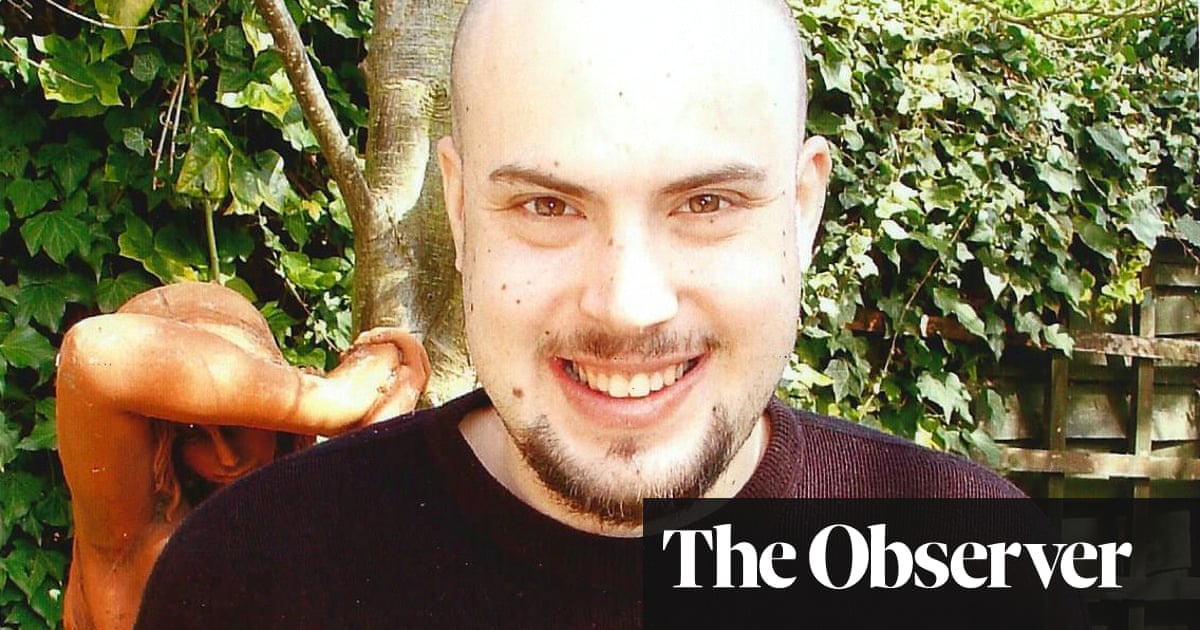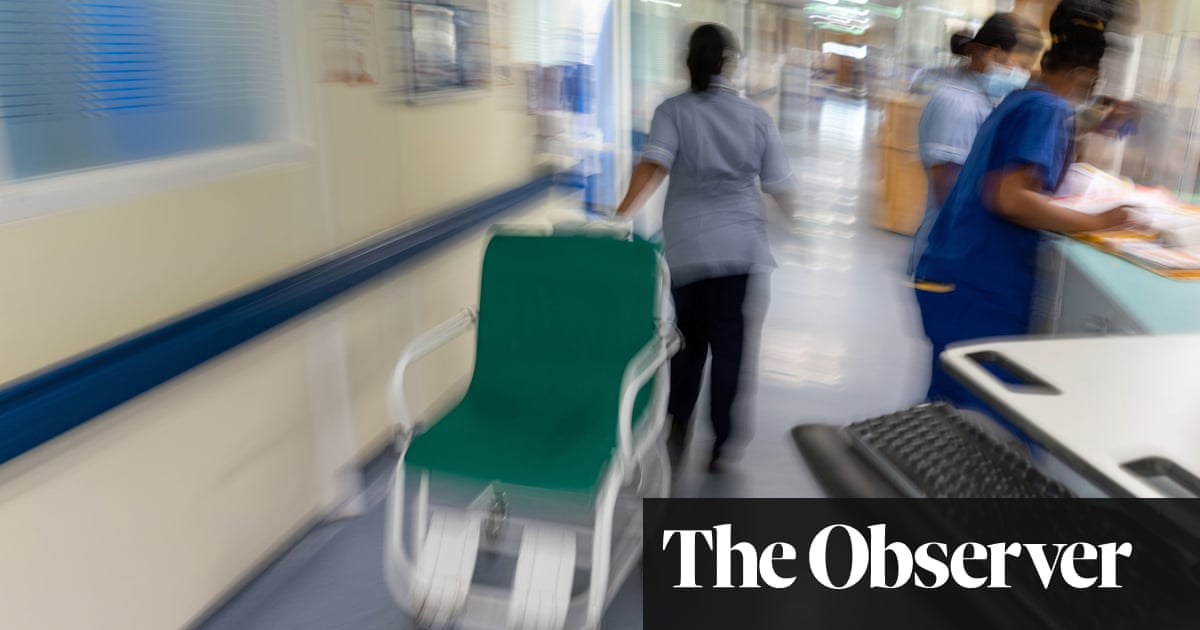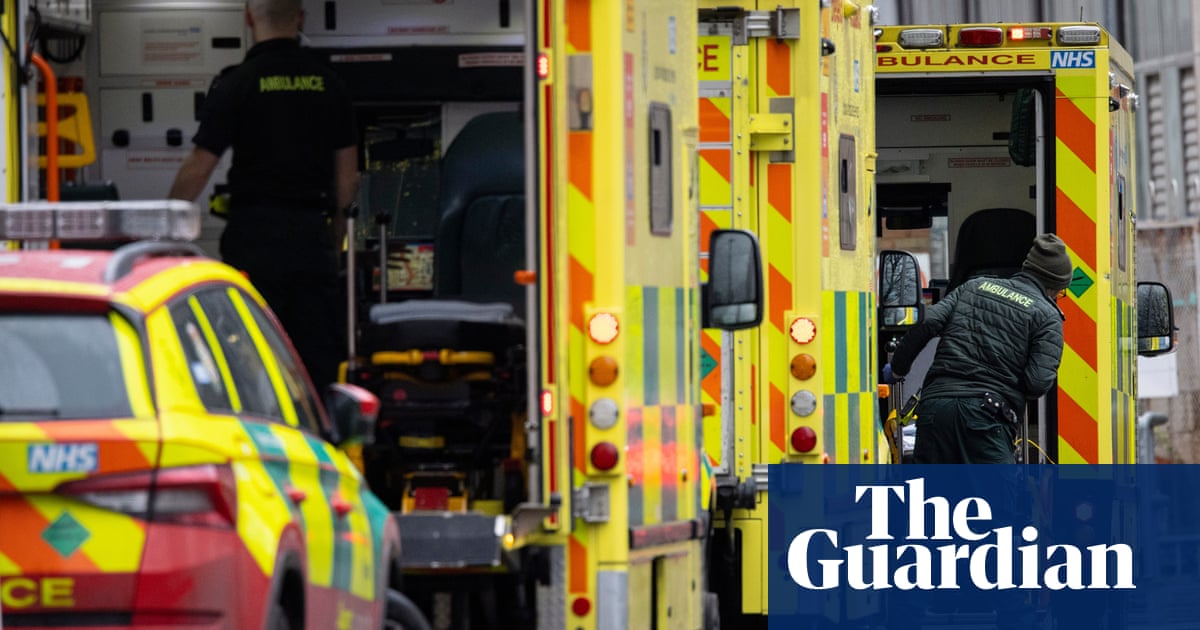
Doctors and nurses have spoken of feeling “brutalised” and burnt out, amid an escalating mental health crisis that has seen hospital staff take more than 8m days off sick in the past five years.
Senior figures called for an urgent plan to plug staff shortages after data seen by the Observer revealed that sick leave related to mental health had increased each year since 2017, spiking through the pandemic.
MPs warned that staff were at “breaking point”, and there was no clear plan to relieve the pressure on them. Some doctors warned of the lasting impact on their colleagues of having to deal with the pandemic.
Intense pressure on staff is set to continue after it emerged last week that the number of people in England waiting to start routine hospital treatment had risen to the highest level since records began 15 years ago.
Data from 67 NHS hospital trusts, released under the Freedom of Information Act, found that there had been the equivalent of 22,718 years of mental health sick days since 2017.
More than 2.2m days came last year, as staff continued to battle through the pandemic, on top of huge treatment backlogs and overrun A&E departments. It is estimated that there are 110,000 vacancies across the NHS, with trust leaders repeatedly warning that there are no robust plans to ensure shortages are filled.
Dr Thomas Dolphin, a consultant anaesthetist, said mental strains were most acute at the start of the pandemic, when staff struggled with limited PPE. However, he said the crisis exposed serious underlying problems. “There was the relentlessness of the banal horror of it – having to watch people dying in such horrible circumstances, unable to see their loved ones,” he said. “To be fair to the hospitals, there was a big focus on staff welfare. But it wasn’t enough, because this exposed understaffing in the NHS that’s been going on for a long, long time.
“We brutalised our staff for months on end. Then, not surprisingly, quite a lot of them have left or retired, or moved to another country as soon as they could because it was soul-destroying. Now we’re in a position where we’re even more short staffed. The consequence is in those [mental health absence] numbers.”
He said that allowing more staff to work reduced hours could help.
Stephen Jones, professional lead for mental health at the Royal College of Nursing, said many nurses felt guilt at not being able to do more for patients. “Many are on the verge of leaving our profession for ever,” he said. “We want employers to work with us to make sure staff are rested, have breaks and look after themselves so they can look after patients better.”
Miriam Deakin, director of policy and strategy at NHS Providers, which represents hospital trusts, said there remained an “enormous strain on people right across the health and care system”. She added: “Just 27% of people working in the NHS feel that there are enough staff in their organisation to allow them to do their jobs properly. More than half of ambulance workers said they felt unwell due to work-related stress in the last year.
“Rising demand and persistent workforce shortages are leaving staff with unsustainably high workloads. As much as trust leaders work to ensure the wellbeing of their staff, supporting personal resilience while operating with these constraints can go only so far.”
Daisy Cooper, the Liberal Democrats’ health spokesperson, who submitted the data requests, said that a host of improvements were needed to help staff, including dealing with the underlying problem of an overstretched workforce.
“These staggering figures show the NHS is facing a tidal wave of mental health-related absences,” she said. “This must be a wake-up call to this Conservative government that they can’t turn a blind eye to this crisis any longer. Sajid Javid needs to come up with a clear plan to support NHS staff, starting by fixing chronic staffing shortages and reducing unsustainable workloads.”
The data released by hospitals suggested the mental health problems were spread across the service, with the biggest trusts reporting the highest numbers of days lost.
Manchester University NHS Foundation Trust, one of England’s biggest, with 10 hospitals, recorded 591,254 working days lost to mental illness over the last five years.
The Northern Care Alliance NHS Foundation Trust and Leeds Teaching Hospitals NHS Trust, two other large trusts, recorded 555,798 and 401,417 sick days respectively. All three trusts said they had comprehensive mental health support for staff in place.
A spokesperson for Manchester University NHS foundation trust said support included a comprehensive employee health and wellbeing service, a dedicated 24/7 employee assistance programme, online resources and mental health first aiders.
Nicky Clarke, chief of people at the Northern Care Alliance NHS foundation trust, said staff had shown “remarkable resilience” throughout the pandemic, with a new wellbeing programme launched in 2020.
Jenny Lewis of Leeds teaching hospitals NHS trust said not all mental health leave was work-related, and reiterated that large trusts had higher absence figures, adding: “We have done a lot of work with staff to remove the stigma associated with mental health so that we can better support our people.”
A spokesperson for the Department of Health and Social Care said: “We know the NHS has been under unprecedented pressure, and supporting the mental health and wellbeing of NHS staff is a priority.
“We’ve invested £37m this year to fund 40 staff mental health hubs nationwide that sit alongside a dedicated helpline and 24/7 text support services. We have record numbers of staff, including over 4,200 more doctors and over 12,100 more nurses compared with January 2021.”












